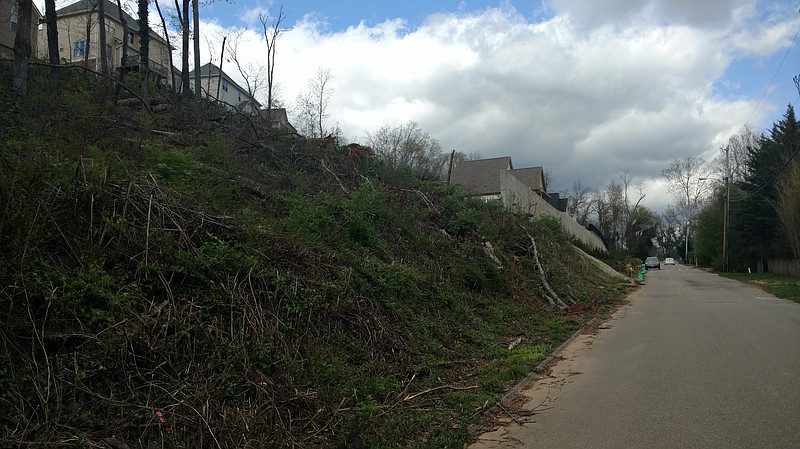The Chattanooga City Council voted Tuesday evening to deny a developer's request to rezone property along Knickerbocker Avenue in North Chattanooga after many residents showed opposition.
The request, by GreenTech Homes, was to rezone some lots in the 1800 block of Knickerbocker Avenue from R-1 for residential use to R-T/Z for residential townhouse use. It would have given the go-ahead for a $20 million project to raise 42 units on the 11.5-acre site.
Councilman Jerry Mitchell said about 60-70 residents who live near the parcel were present at the Chattanooga-Hamilton County Regional Planning Commission to fight the rezoning request and he received many emails against the request.
Mitchell said residents' main concerns were that the rezoning would cause the area's population density to be too high.
At Tuesday's council meeting, multiple hands went up when Chairman Ken Smith asked if there was any opposition to the request before Mitchell made a motion to deny.
The representative for the applicant, GreenTech Homes, was not present at the meeting, and so a hearing was not held. Mitchell made the motion to deny the request based on the amount of opposition it received and based on the planning commission's recommendation to deny.
The planning commission recommended the request be denied out of concern for such intense developing on a steep slope that is located at that site, as well as the opposition it received, planning agency director John Bridger said.
The developer will be able to reapply for rezoning within nine months, Bridger said.
Also discussed at Tuesday's meeting were the city's first applications for short-term vacation rentals.
Four people applied for the special permit to let them rent their homes on sites such as Airbnb. All four were approved, with the last one receiving slight pushback from a neighbor who said she was concerned that too many short-term rentals would take over the neighborhood, possibly denying people long-term housing.
But the city already has policies in place to regulate short-term vacation rentals, after taking steps to enact a special district for short-term vacation rental businesses in June of last year. Property owners are required to purchase a permit if they want to list their house as a short-term rental. After an application is made, neighbors will receive notice and have a chance to oppose the permit, which is what played out at Tuesday's meeting.
Contact staff writer Rosana Hughes at rhughes@timesfreepress.com or 423-757-6327 with tips or story ideas. Follow her on Twitter @Hughes Rosana.
